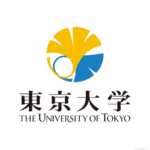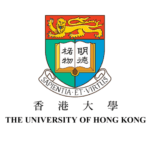
Our teachers and tutors graduated from top universities








Overview
In terms of economic growth, Singapore has become one of the fastest growing developed countries. One of the key factors in the country’s success has been its strong and well-regarded educational system. According to a recent study, Singapore has the fourth best education system in the world.
The positive aspect of Singapore education is that it keeps education costs under control in order to keep it affordable. It is made possible by substantial government funding, which amounts to 20% of Singapore’s national budget. This combination of world-class education at an affordable price has made Singapore a popular destination for international students as well.
A Brief Overview of Singapore’s Educational System
Singapore has the best schools, colleges, universities, and other educational institutions in the world. Singapore’s educational system is broadly classified as follows:
- Pre-Primary
- Primary
- Secondary
- Pre-University
- University
- Pre-Primary Education
Playschool, Nursery, and Kindergarten are all part of pre-primary education. These schools are typically run by the private sector, which includes religious organizations, community foundations, business groups, and so on.
Primary Education
Primary education is compulsory education that typically begins at the age of seven. It is the first step toward formal education and lasts 6 years. Primary education is divided into two stages:
Primary 1 to 4, a total of 4 years in the foundation stage
Primary 5 and 6, total 2 years of orientation
After completing six years of primary school, students must take the Primary School Leaving Exam (PSLE) before proceeding to secondary school.
Secondary Education
A student is assigned to one of four secondary education streams based on their PSLE merit ranking: Special, Express, Normal (Academic), or Normal (Technical).
Secondary education is typically completed in 4-5 years, following which students must sit for the Singaporean GCE ‘O’ Level exam. Students are admitted to pre-university education based on their performance in that exam.
Pre-University Education
Junior Colleges and Polytechnics are the two broad categories of pre-university education.
Junior Colleges provide a two-year junior college/3-year centralized institute pre-university program that culminates in the GCE ‘A’ Level examination. These colleges prepare students for university education by providing them with the necessary skills and knowledge.
Polytechnics provide three-year diploma programs in a variety of subjects such as tourism, biotechnology, digital media, engineering, and business studies. All of these courses are hands-on, with a lot of group work.
University Education
The National University of Singapore, Nanyang Technological University, Singapore Management University, Singapore University of Technology & Design, Singapore Institute of Technology, and SIM University are the country’s six national universities. Only SIM University is Singapore’s sole national private university.
Graduate, postgraduate, and doctoral programs in a variety of fields comprise University Education level. The National University of Singapore and Nanyang Technological University are among the world’s top 50 universities. Both of these universities specialize in research and thus attract a large number of research scholars from around the world.
SIM University, which is privately run, is Singapore’s only university dedicated solely to adult learners. Only working adults are eligible for part-time degree programs at the university.
All of these Singapore universities have collaborations with other top universities around the world to provide students with enhanced learning experiences, particularly in the field of research.
Private and International Schools
Singapore has a number of private schools in addition to government-funded state schools. These schools are not managed by local, state, or national governments; rather, they are managed by private entities such as an individual, group, trust, or organization. These schools do not receive government funding and are instead supported entirely or partially by high tuition fees charged to their students.
However, it should be noted that in Singapore, private schools only operate at the Secondary Education level. As a result, passing the PSLE exam is also required for admission to a private high school.
In addition to private schools, Singapore has several international schools that primarily serve the educational needs of the city-large state’s immigrant population and generally do not accept local Singaporean students. The majority of these schools adhere to the International Baccalaureate (IB) curriculum. In addition to international curricula, some international schools in Singapore offer national curricula tailored to students from a particular country.
Admission to a private or international school is much easier than admission to a government school. This is due to the fact that in government schools, preference is given to Singaporeans, and thus seats for immigrant students are extremely limited. Often, an immigrant student must wait a long time to be admitted to a reputable government school.
Monthly tuition fees in private schools and international schools are approximately ten times higher than those charged in public schools.
Need more info?
Let's talk.
Leave your phone number, and we’ll call you back to discuss how we can help you.


